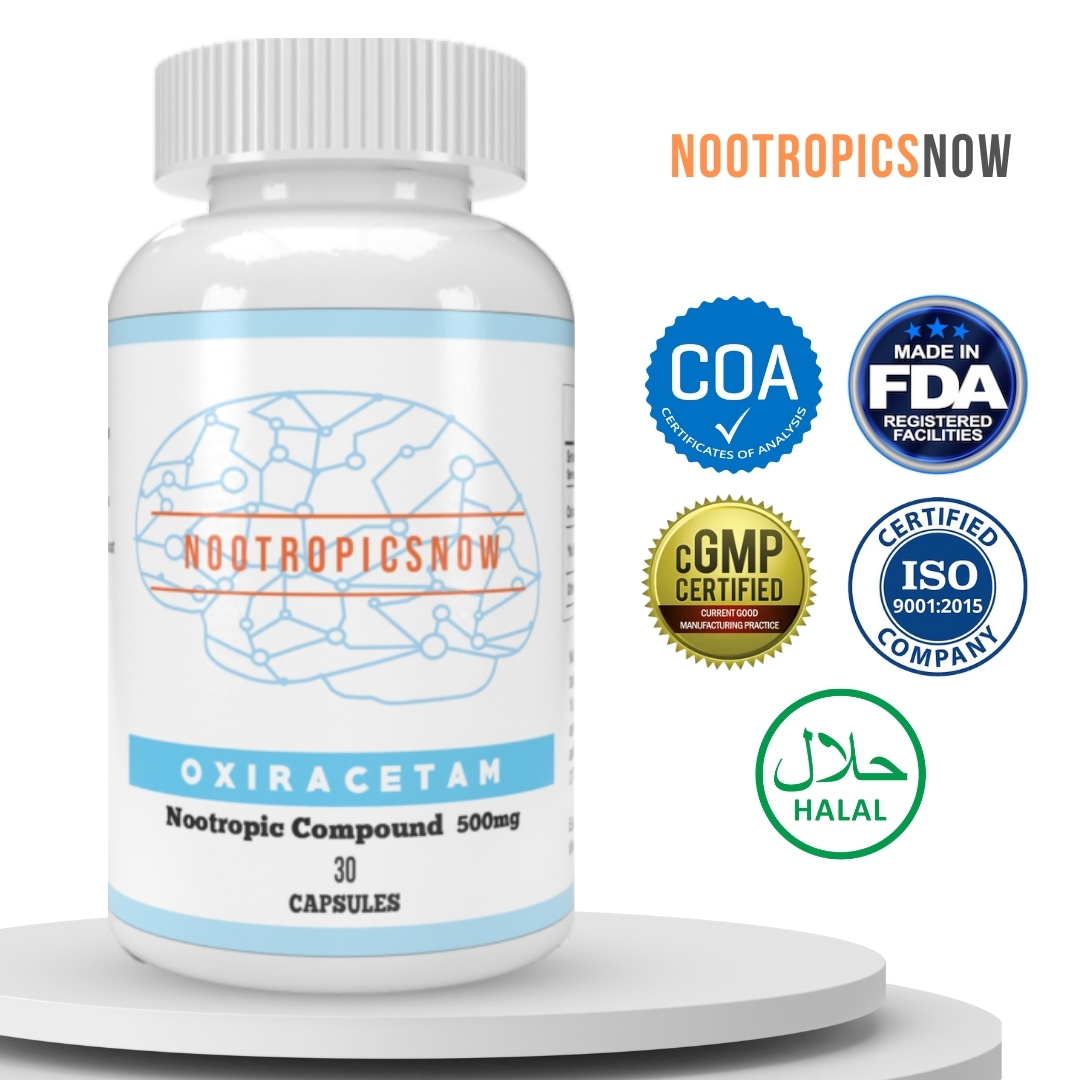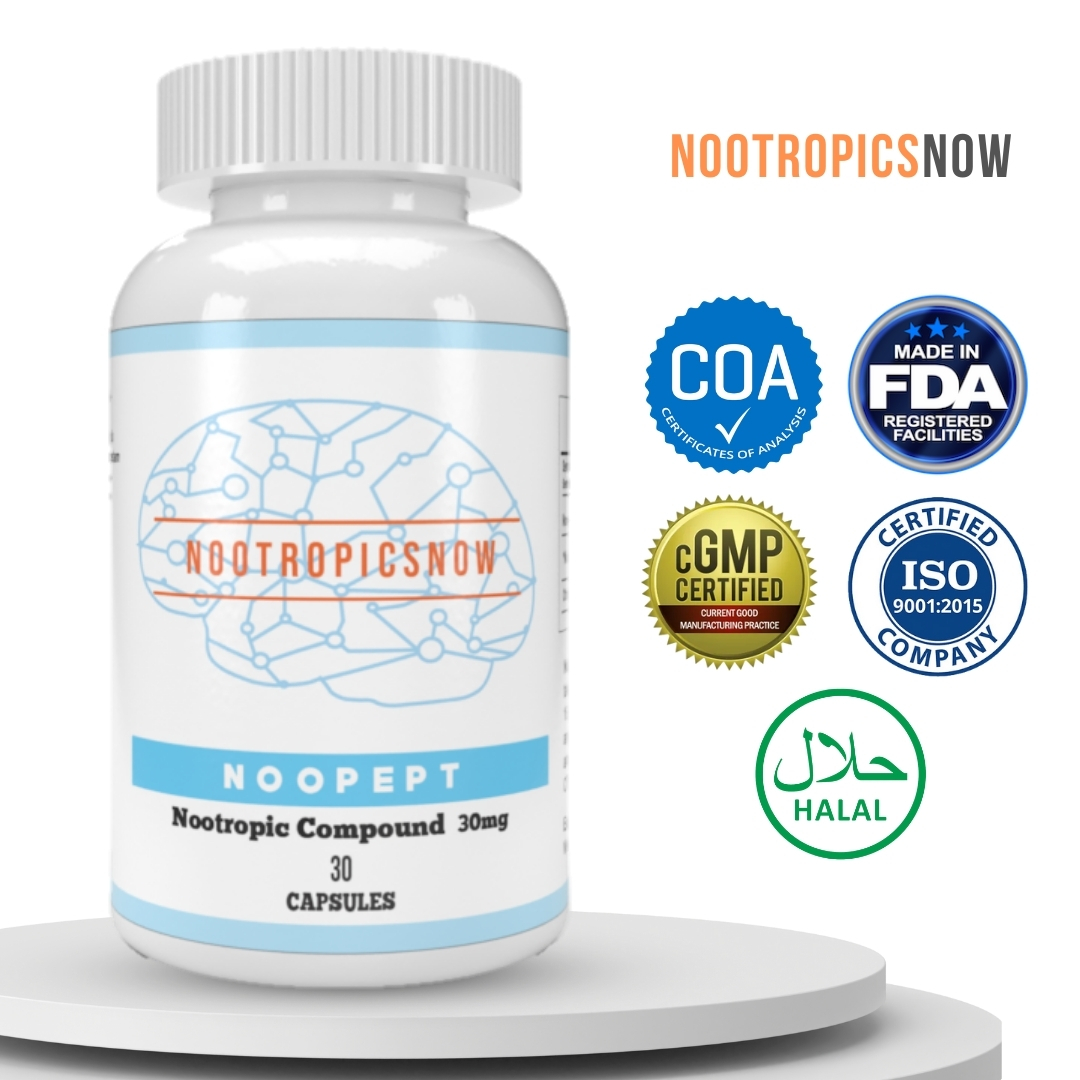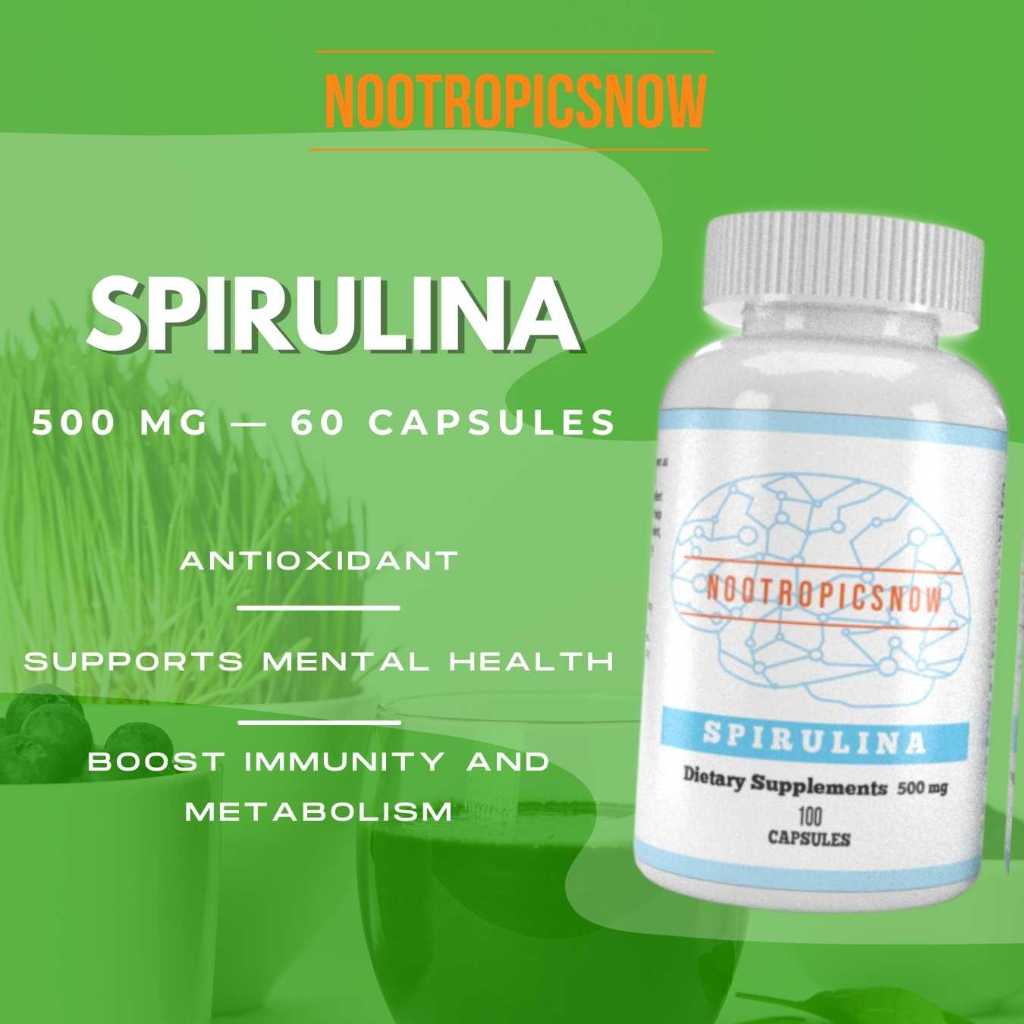Fasoracetam: Cognitive Benefits Research

Fasoracetam Cognitive Research: A Deep Dive into Benefits, Mechanisms, and Future Potential
Fasoracetam is a synthetic nootropic compound belonging to the racetam family. It has garnered substantial interest in recent years for its potential cognitive-enhancing properties. Initially researched by Nippon Shinyaku Pharmaceutical Co. for vascular dementia, fasoracetam’s development was later discontinued. However, research into its cognitive effects persisted, leading to investigations into its efficacy in addressing a range of cognitive deficits. Consequently, it has emerged as a promising subject in the study of cognitive enhancement and neuropsychiatric disorders.
Understanding Fasoracetam’s Mechanism of Action
Fasoracetam’s primary allure stems from its complex mechanism of action. This mechanism affects multiple neurotransmitter systems within the brain, potentially offering a broad spectrum of cognitive benefits. This complexity sets it apart from other nootropics that may target only a single pathway.
Cholinergic System Modulation
The cholinergic system, crucially involved in learning, memory, and attention, is significantly influenced by fasoracetam. Specifically, fasoracetam is believed to increase the release of acetylcholine (ACh), a key neurotransmitter in this system. Increased ACh levels have been correlated with improved memory consolidation and enhanced cognitive processing speed. Consequently, the modulation of this system is likely a central mechanism through which fasoracetam exerts its effects.
Glutamate Receptor Modulation
Glutamate, the primary excitatory neurotransmitter in the brain, is critical for synaptic plasticity and learning. Fasoracetam interacts with metabotropic glutamate receptors (mGluRs), particularly mGluR1 and mGluR5. These receptors play vital roles in modulating neuronal excitability and synaptic transmission. By influencing mGluR activity, fasoracetam may help optimize glutamate signaling, which, in turn, supports cognitive functions.
GABAergic System Influence
The GABAergic system, responsible for inhibitory neurotransmission, helps to balance neuronal activity and reduce anxiety. Fasoracetam has been shown to modulate GABA receptors, enhancing GABAergic activity. This modulation can lead to anxiolytic effects and promote a sense of calm, which could indirectly improve focus and cognitive performance. Moreover, this influence suggests fasoracetam may possess therapeutic potential for anxiety disorders.
Upregulation of GABA-B Receptors
Further research indicates fasoracetam upregulates GABA-B receptors. By increasing the number of GABA-B receptors, fasoracetam potentially enhances the brain’s capacity to respond to GABA, leading to a more pronounced calming and anxiolytic effect. This action is particularly relevant for individuals experiencing anxiety or stress, where heightened GABAergic activity could provide cognitive relief.
Cognitive Benefits: Examining the Evidence
While fasoracetam is still under investigation, early research suggests several potential cognitive benefits. These benefits range from memory enhancement to improved focus and mood regulation. However, the evidence base is still evolving, and more rigorous clinical trials are needed to confirm these effects.
Enhanced Memory and Learning
Studies have indicated that fasoracetam may improve both memory recall and retention. The increase in acetylcholine, coupled with glutamate modulation, facilitates the formation and consolidation of memories. Subjects in animal studies demonstrated improved performance on spatial memory tasks, suggesting a tangible benefit for learning and recall. Furthermore, the enhanced consolidation may lead to improved long-term retention.
Improved Focus and Concentration
The calming effect derived from GABAergic modulation may contribute to improved focus and concentration. By reducing anxiety and promoting a sense of calm, fasoracetam could enable individuals to maintain attention over extended periods. This feature is particularly appealing for those who struggle with focus due to anxiety or hyperactivity. Therefore, its ability to enhance focus separates it from other nootropics targeting other cognitive domains.
Mood Enhancement and Anxiety Reduction
The potential for mood enhancement and anxiety reduction suggests trying other supplements.

View Product
Fasoracetam’s influence on the GABAergic system points to its potential to regulate mood and reduce anxiety. GABA, known for its inhibitory effects, helps balance neuronal excitability and reduces feelings of stress and anxiety. Fasoracetam’s ability to modulate GABA receptors may help alleviate symptoms of anxiety and promote a more positive mood state. This aspect makes it a promising candidate for managing conditions associated with mood dysregulation.
Potential for ADHD Treatment
One of the more intriguing areas of research involves fasoracetam’s potential in treating Attention Deficit Hyperactivity Disorder (ADHD). Preliminary studies have shown promising results, with some participants experiencing reduced ADHD symptoms such as inattention and hyperactivity. Specifically, research has targeted individuals with specific genetic mutations in glutamatergic genes, suggesting a personalized approach to treatment.
Current Research and Future Directions
Despite the promising initial findings, it is crucial to note that fasoracetam remains an experimental compound. Clinical trials are limited, and much of the research is based on animal studies. Therefore, researchers emphasize the need for more comprehensive human trials to fully evaluate the safety and efficacy of fasoracetam.
Ongoing Clinical Trials
Currently, several clinical trials are underway, examining the effects of fasoracetam on various cognitive and neurological conditions. These trials aim to assess its effectiveness in treating ADHD, anxiety disorders, and cognitive impairments associated with Alzheimer’s disease. The results of these trials will provide valuable insights into its clinical utility and potential side effects.
Safety and Side Effects
The safety profile of fasoracetam appears to be relatively favorable, with most users reporting mild side effects. Commonly reported side effects include headaches, fatigue, and gastrointestinal discomfort. However, it is crucial to acknowledge that long-term effects have not been extensively studied. Therefore, cautious use and careful monitoring are advisable.
Drug Interactions
As with any experimental compound, potential drug interactions with fasoracetam are not fully understood. Individuals taking other medications, particularly those affecting the central nervous system, should exercise caution and consult with a healthcare professional before using fasoracetam. Given its influence on GABA receptors, it is imperative to avoid combining it with other GABAergic drugs without medical supervision.
Practical Considerations for Use
For individuals interested in exploring fasoracetam, certain practical considerations are essential to ensure responsible and informed use. These considerations include understanding dosage guidelines, sourcing the compound from reputable vendors, and consulting with a healthcare professional.
When obtaining compounds, checking for quality is important.
Dosage Guidelines
Recommended dosages for fasoracetam vary widely, with most users starting with a low dose and gradually increasing it as needed. Common starting doses range from 10 to 20 mg per day, divided into multiple administrations. However, it is essential to note that there is no established optimal dosage, and individual responses may vary significantly. Therefore, starting low and gradually increasing the dosage is crucial to minimize the risk of adverse effects.
Sourcing and Quality Control
The nootropic market is rife with unregulated products, making it essential to source fasoracetam from reputable vendors. Look for vendors who provide third-party testing and certificates of analysis to ensure purity and potency. Avoid purchasing from sources that offer unrealistically low prices or lack transparency regarding their sourcing and manufacturing practices. Quality control is paramount to minimize the risk of contamination or adulteration.
Consulting a Healthcare Professional
Before initiating any nootropic regimen, consulting with a healthcare professional is imperative. Healthcare professionals can assess your medical history, identify potential contraindications, and provide personalized guidance. Moreover, they can monitor for any adverse effects and adjust your regimen as needed. Self-treating without medical supervision carries inherent risks and is strongly discouraged.
The Future of Fasoracetam Research
Fasoracetam represents a promising area of research in cognitive enhancement and neuropsychiatric treatment. Its multifaceted mechanism of action, combined with its potential therapeutic benefits, makes it a compelling subject for further investigation. As research progresses, our understanding of its full potential and limitations will continue to evolve.
Potential Therapeutic Applications
Future research may focus on exploring its therapeutic potential in various conditions, including ADHD, anxiety disorders, Alzheimer’s disease, and other cognitive impairments. Additionally, studies may investigate its ability to enhance cognitive performance in healthy individuals. The prospect of using fasoracetam to improve cognitive function in diverse populations remains a tantalizing prospect.
Personalized Medicine
One of the more exciting possibilities involves using fasoracetam as part of a personalized medicine approach. By identifying individuals with specific genetic profiles or neurological conditions that respond favorably to fasoracetam, healthcare professionals could tailor treatment plans to maximize efficacy and minimize side effects. This personalized approach holds the potential to revolutionize the treatment of cognitive and neuropsychiatric disorders.
Combinatorial Therapies
Future studies may also explore the potential of combining fasoracetam with other nootropics or therapeutic interventions. Synergistic effects may emerge when fasoracetam is used in conjunction with other compounds, leading to greater cognitive enhancements or therapeutic benefits. However, research in this area is still in its infancy, and careful investigation is warranted.
Conclusion: Weighing the Promise and the Unknown
Fasoracetam stands as a compelling subject in the realm of cognitive research. Its unique mechanisms, targeting cholinergic, glutamatergic, and GABAergic systems, hint at broad cognitive and therapeutic potential. Early studies reveal encouraging signs for memory enhancement, focus improvement, and mood regulation, and potential applications in ADHD treatment are being explored.
However, the journey forward demands caution. The experimental nature of fasoracetam, with limited human trials and undefined long-term effects, underscores the need for rigorous research and responsible use. Dosage guidelines, sourcing, and quality control demand scrupulous attention. Moreover, consulting healthcare professionals remains paramount before incorporating fasoracetam into any regimen.
Consider some alternatives for now.

View Product
As ongoing clinical trials illuminate the true scope of fasoracetam’s abilities and limitations, the future holds exciting possibilities. From personalized medicine approaches to combinatorial therapies, this nootropic may well carve out a significant role in cognitive enhancement and neurological treatment, provided research continues to prioritize safety and efficacy. The balance between promise and unknown makes fasoracetam a frontier worth watching, with prudence as our guiding principle.

View Product
Fasoracetam Cognitive Research: Unveiling the Mechanisms and Benefits
Fasoracetam, a nootropic compound belonging to the racetam family, has emerged as a subject of intense interest in cognitive research. Originating from Nippon Shinyaku, who initially investigated it for vascular dementia in the 1990s, fasoracetam is now studied for its potential to improve memory, enhance focus, and alleviate symptoms related to anxiety and depression. Its unique mechanisms and potential applications make it a compelling area of study for cognitive enhancement and neurological health.
Unpacking the Mechanism of Action
Fasoracetam’s efficacy stems from its complex interaction with several neurotransmitter systems within the brain. Understanding these interactions is critical to appreciating its cognitive effects.
Cholinergic System Modulation
One of the primary mechanisms through which fasoracetam influences cognition is via the cholinergic system. This involves the modulation of acetylcholine, a neurotransmitter vital for memory, learning, and attention. Fasoracetam boosts the activity of acetylcholine receptors, enhancing cholinergic neurotransmission. Consequently, cognitive processes dependent on acetylcholine, such as memory consolidation and retrieval, are improved. Furthermore, the upregulation of acetylcholine is associated with neuroplasticity, which enhances the brain’s ability to adapt and learn.

View Product
Glutamatergic Receptor Influence
Fasoracetam also interacts with metabotropic glutamate receptors (mGluRs), specifically mGluR1 and mGluR5. These receptors play a vital role in synaptic plasticity, learning, and memory. By modulating these receptors, fasoracetam helps in fine-tuning glutamate neurotransmission, preventing excitotoxicity and promoting optimal synaptic function. Glutamate is the brain’s primary excitatory neurotransmitter, and its balanced activity is essential for cognitive health. Fasoracetam’s regulatory effect on glutamate ensures that neuronal communication remains efficient and effective. Therefore, this mechanism is critical to fasoracetam’s beneficial impact on cognitive function.
GABAergic System Modulation
Additionally, fasoracetam affects the GABAergic system, the brain’s primary inhibitory neurotransmitter system. GABA, or gamma-aminobutyric acid, is responsible for calming neuronal activity and reducing anxiety. By modulating GABA receptors, fasoracetam can promote relaxation and reduce feelings of stress and anxiety. This can improve focus and cognitive performance by creating a more stable and balanced neurochemical environment. In essence, fasoracetam’s influence on the GABAergic system complements its cholinergic and glutamatergic actions, enhancing overall cognitive function and emotional regulation.

View Product
Neuroprotective Qualities
Beyond neurotransmitter modulation, research indicates that fasoracetam possesses neuroprotective properties. It safeguards neurons from damage caused by oxidative stress and excitotoxicity. Oxidative stress arises when there’s an imbalance between the production of free radicals and the body’s ability to neutralize them. Excitotoxicity, on the other hand, results from excessive glutamate stimulation, which can harm nerve cells. By mitigating these threats, fasoracetam contributes to the long-term health and resilience of brain cells. Consequently, this neuroprotective aspect not only supports immediate cognitive functions but also plays a preventative role in maintaining brain health over time.
Exploring the Cognitive Benefits of Fasoracetam
Fasoracetam’s multifaceted mechanism of action translates into a range of cognitive benefits, making it a compelling subject for research and potential therapeutic applications.
Memory Enhancement
One of the most promising benefits of fasoracetam is its ability to enhance memory. Studies have demonstrated improvements in both memory recall and retention. This effect is primarily attributed to its influence on the cholinergic system, which is vital for forming and consolidating memories. Acetylcholine, boosted by fasoracetam, plays a crucial role in synaptic plasticity, the brain’s ability to strengthen connections between neurons. These enhanced synaptic connections facilitate the storage and retrieval of information, thereby improving overall memory function.

View Product
Focus and Attention Improvement
Fasoracetam has shown potential in improving focus and attention, making it valuable for individuals struggling with concentration. By modulating the GABAergic system, fasoracetam can induce a calming effect, reducing anxiety and promoting mental clarity. This balanced neurochemical state enables individuals to maintain focus on tasks without being distracted by stress or intrusive thoughts. The ability to sustain attention is crucial for productivity, learning, and problem-solving, all of which are positively influenced by fasoracetam.

View Product
Mood Regulation
Fasoracetam’s impact extends to mood regulation, offering potential benefits for individuals dealing with anxiety and depression. By modulating GABA receptors, fasoracetam can promote relaxation and reduce feelings of anxiety. Additionally, it may influence other neurotransmitter systems involved in mood, such as serotonin and dopamine. These actions can lead to a more balanced emotional state, reducing symptoms of depression and improving overall well-being. This mood-stabilizing effect is an essential aspect of fasoracetam’s cognitive-enhancing profile.

View Product
Potential Therapeutic Uses
The unique mechanisms and cognitive benefits of fasoracetam have spurred research into its potential therapeutic applications. One area of interest is its use in treating Attention Deficit Hyperactivity Disorder (ADHD). Fasoracetam’s ability to improve focus and attention, as well as reduce anxiety, makes it a promising candidate for managing ADHD symptoms. Furthermore, researchers are exploring its use in mitigating cognitive impairments associated with neurodevelopmental disorders and neurodegenerative conditions, such as Alzheimer’s disease. Additionally, its mood-stabilizing effects suggest that it may have a role in treating mood disorders like depression and anxiety.
Review of Research and Clinical Trials
Although fasoracetam shows promise, it’s crucial to consider the current state of research. Much of the evidence supporting its benefits comes from animal studies and preliminary human trials.
Animal Studies
Animal studies have provided significant insights into fasoracetam’s mechanisms and cognitive effects. Research using rodent models has demonstrated improvements in memory, learning, and attention. These studies often involve behavioral tests, such as the Morris water maze, which assesses spatial memory, and object recognition tasks, which evaluate short-term and long-term memory. Animal studies have also explored fasoracetam’s neuroprotective properties, showing its ability to protect neurons from damage caused by oxidative stress and excitotoxicity.
Human Trials
Human trials involving fasoracetam are relatively limited, but the results are encouraging. Initial studies have focused on its safety and tolerability, with fasoracetam generally considered safe for short-term use. Some trials have examined its effects on cognitive function in healthy adults, reporting improvements in memory and attention. More targeted studies have investigated its use in specific populations, such as individuals with ADHD or cognitive impairments. These trials have shown potential benefits, but larger and more rigorous studies are needed to confirm these findings.
Safety Profile and Side Effects
The safety profile of fasoracetam appears favorable based on the available research. Common side effects are typically mild and transient, including headaches, fatigue, and gastrointestinal discomfort. However, long-term safety data are still lacking, highlighting the need for more comprehensive studies. It’s crucial for individuals considering fasoracetam to consult with a healthcare professional to assess potential risks and interactions, especially if they have underlying health conditions or are taking other medications.
Conclusion and Future Directions
Fasoracetam is a promising nootropic compound with a unique mechanism of action and a range of potential cognitive benefits. Its modulation of cholinergic, glutamatergic, and GABAergic systems makes it a compelling subject for research and potential therapeutic applications. While initial studies are encouraging, further research is needed to fully understand its efficacy, safety, and long-term impact. As scientific exploration continues, fasoracetam may one day emerge as a valuable tool in the treatment of ADHD, cognitive impairments, and mood disorders. However, until more robust evidence is available, it should be approached with caution and used under the guidance of a healthcare professional.
View Product-Nootropic-Brain-Booster-Supplement-Memory-Anxiety-Mood-i.202321183.7553863660)
Optimizing Cognitive Function: Practical Tips and Lifestyle Changes
Beyond the realm of nootropics like fasoracetam, adopting certain lifestyle changes can significantly enhance cognitive function. These changes encompass various areas, from diet and exercise to sleep hygiene and stress management.
Nutrition and Brain Health
A well-balanced diet plays a crucial role in brain health and cognitive function. Certain nutrients are particularly important for optimal brain performance. Omega-3 fatty acids, found in fish, flaxseeds, and walnuts, are essential for brain cell structure and function. Antioxidants, abundant in fruits and vegetables, protect brain cells from oxidative stress. B vitamins, vital for energy production and neurotransmitter synthesis, are found in whole grains, lean meats, and leafy greens. Staying hydrated is also crucial, as dehydration can impair cognitive function.

View Product
The Role of Exercise
Regular physical exercise is not only beneficial for physical health but also for cognitive function. Exercise increases blood flow to the brain, promoting neuroplasticity and the growth of new brain cells. It also boosts the release of neurotransmitters like dopamine and serotonin, which improve mood and cognitive performance. Both aerobic exercises, such as running and swimming, and strength training exercises have been shown to benefit cognitive function. Aim for at least 30 minutes of moderate-intensity exercise most days of the week.

View Product
Prioritizing Sleep Hygiene
Adequate sleep is essential for cognitive function. During sleep, the brain consolidates memories, clears out toxins, and repairs itself. Lack of sleep can impair attention, memory, and decision-making. To improve sleep hygiene, establish a regular sleep schedule, create a relaxing bedtime routine, and ensure a dark, quiet, and cool sleep environment. Avoid caffeine and alcohol before bed, and consider relaxation techniques like meditation or deep breathing to promote restful sleep.
View Product-Brain-Booster-Anxiety-Sleep-Supplement-i.202321183.8209281913)
Stress Management Techniques
Chronic stress can negatively impact cognitive function. High levels of cortisol, the stress hormone, can damage brain cells and impair memory. Therefore, effective stress management techniques are crucial for maintaining cognitive health. Mindfulness meditation, yoga, and deep breathing exercises can help reduce stress and promote relaxation. Engaging in hobbies, spending time in nature, and connecting with loved ones can also help buffer against stress.

View Product
Cognitive Training and Mental Stimulation
Just as physical exercise strengthens the body, mental exercise strengthens the brain. Engaging in cognitively stimulating activities can improve memory, attention, and problem-solving skills. Puzzles, brain games, learning new skills, and reading are all excellent ways to challenge the brain. Social interaction and lifelong learning also contribute to cognitive health by keeping the brain active and engaged.
Practical Integration
Incorporating these lifestyle changes into daily life can significantly enhance cognitive function. Combining a balanced diet, regular exercise, sufficient sleep, effective stress management, and cognitive training can create a synergistic effect, maximizing cognitive potential. While nootropics like fasoracetam may offer additional benefits, these lifestyle changes provide a solid foundation for cognitive health.

